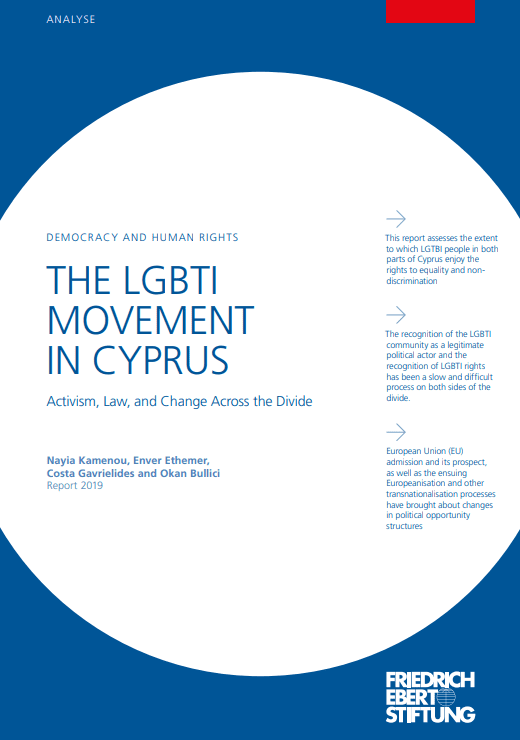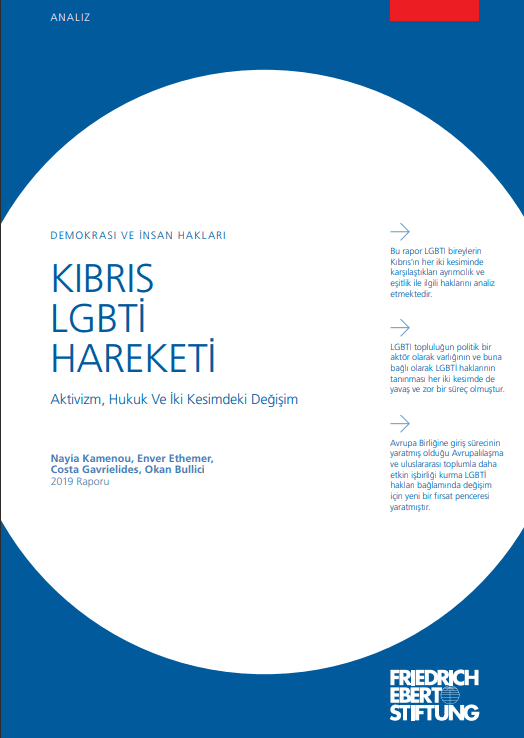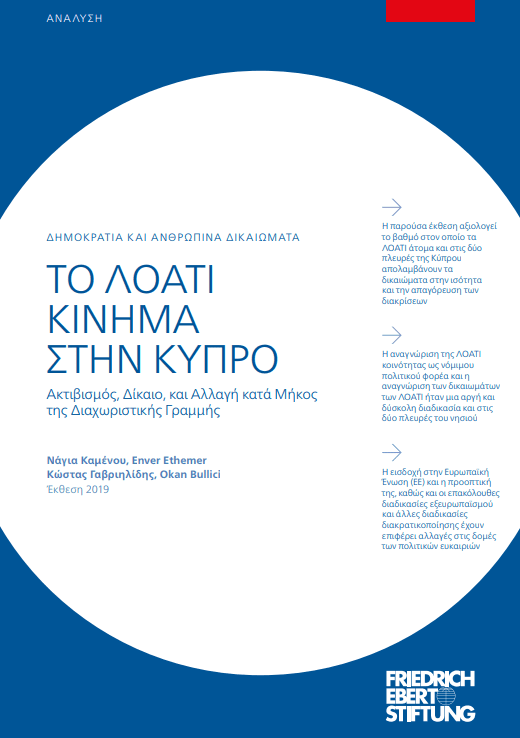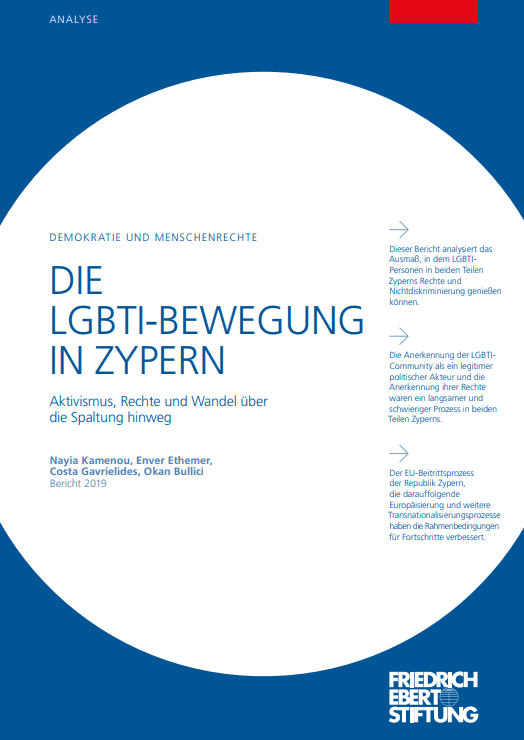The LGBTI Movement In Cyprus
Activism, Law and Change Across the Divide
Report 2019 / Nayia Kamenou, Costa Gavrielides, Enver Ethemer and Okan Bullici. - Nicosia: Friedrich-Ebert-Stiftung Cyprus Office, 2019. - 23 Pages = 310 KB, PDF-File. - (Analysis). - (Democracy and human rights)
Electronic ed.: Nicosia : FES, 2020
ISBN 978-9963-2021-6-4
Electronic ed.: Nicosia : FES, 2020
ISBN 978-9963-2021-6-4
Synopsis:
In Cyprus, colonisation, ethnic division, and the influence of conservative socio-political actors have stalled the creation and development of an LGBTI movement. The admission of the Republic of Cyprus to the European Union in 2004 has brought about changes in political opportunity structures that facilitated the mobilisation of LGBTI groups on both sides of the island that remains divided across ethnic lines. Taking advantage of the tools and opportunities afforded to them by European institutions and regional umbrella LGBTI organisations, Greek-Cypriot and Turkish-Cypriot LGBTI activists have pushed for the recognition of LGBTI rights in the south and in the north of the island respectively, and have joined efforts for LGBTI equality beyond ethnic lines.
Nonetheless, in Cyprus, LGBTI equality remains a work in progress. In the north, even though homosexuality has been decriminalised, after the dissipation of the mid-2000s momentum and of the prospect of island’s reunification and the admission of the north to the EU, the progress of LGBTI rights has been sluggish, trapped into changing political discourse and hampered by structural rigidities. In the Republic of Cyprus, LGBTI activists have been somehow more successful at achieving positive legal changes, like the decriminalisation of homosexuality, homophobic and transphobic hate speech legislation, same-sex civil unions and a draft bill on legal gender recognition. However, on both sides of the island, decision-makers have been slow – if not reluctant – to align national legislation with EU and international legal standards. Moreover, state/authorities-initiated attempts at tackling LGBTI social and cultural marginalisation have been limited.
However, it is not all doom and gloom as, since the early-2010s, a pan-Cypriot LGBTI movement is in the making that progressively increases its efforts not only for LGBTI legal recognition, but also for substantive equality and intersectional justice beyond ethnic, class, race, sexual orientation, gender identity, sex characteristics and other hierarchisations.




